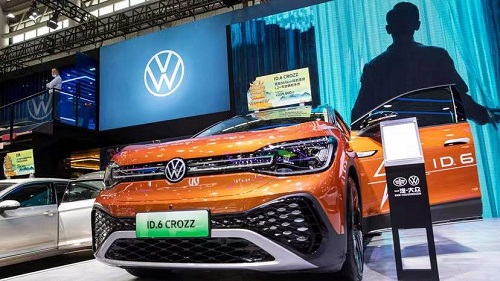The demand for lithium raw materials has increased greatly, and the cost of batteries has risen
Prices soared
Prices for electric vehicle batteries are set to rise again in 2022 after a decade of sharp declines as supplies of lithium and other raw materials struggle to keep up with ballooning demand.
The benchmark price for lithium carbonate ended 2021 at a new record as mining companies scrambled to increase output from existing facilities and find new sources of supply. In China, the world’s largest battery producer, the domestic price of lithium raw material reached about $41,060 per ton, more than five times higher than in January last year.

Cathode material
The cathode is the most expensive component of the battery, and the prices of other raw materials used in the cathode are also rising. The price of cobalt has doubled to $70,208 per ton since January last year; nickel has risen 15 percent to $20,045 per ton.
The data shows that in 2010, the price of lithium battery packs was above $1,200 per kilowatt-hour, and by 2021 the price has plummeted to $132. But it is expected that the average price of a battery pack could rise to $135 per kWh in 2022. Typically, cathode materials account for about 30% of the total cost of a battery pack.
Over the past 10 years, automakers and battery manufacturers have worked hard to develop long-life, high-performance batteries, and are also seeking to continuously reduce the cost of battery production. However, rising raw material prices are undermining the technological and efficiency gains that companies have achieved in recent years.
And rising raw material prices also threatens the electrification that the auto industry is trying to achieve. Electrification has become a new industry torrent, and even companies like Toyota, which have always been not optimistic about pure electric vehicles, have also set their own electric vehicle production goals.
Hot sales in China
Due to the hot sales in the Chinese market, the total global electric vehicle sales are expected to reach 5.6 million in 2021, compared with 3.1 million in 2020.
A report released by S&P Global in December said that demand for electric vehicles will grow further in 2022, so lithium consumption will exceed production this year, and previous stocks will be depleted, which means there will be a serious shortage of lithium.
Supply of lithium carbonate will jump from an estimated 497,000 tons in 2021 to 636,000 tons in 2022, but demand will jump from an estimated 504,000 tons to 641,000 tons or even higher, the report said.

In the short term, the supply of lithium will be very limited. Australian producers closing mines after a low-price period in 2020 are proving difficult to rehire staff and return production to pre-pandemic levels as the pandemic continues.
As the global automotive industry shifts from internal combustion engines to electric vehicles, pressure to secure new raw material supplies comes with it.
Battery makers are trying to diversify their sources of supply, including China’s CATL, the world’s largest battery maker. “No country can compete with China in terms of cost competitiveness,” a Japanese lithium trader said.
In 2020, Tesla secured the rights to extract lithium from deposits in Nevada, and BMW signed a five-year cobalt supply agreement with Moroccan producer Managem in a deal valued at $113 million.
Last month, Volkswagen also signed an agreement with the Vulcan Group to purchase “zero-carbon” lithium from the latter to supply its battery cell factories. In addition, Volkswagen announced that it will establish a joint venture with Belgian materials company Umicore to produce precursor and anode materials in Europe.
Toyota said that through its partnership with Toyota Tsusho, it has secured enough supply of battery raw materials, including lithium, to meet its needs by 2030.



